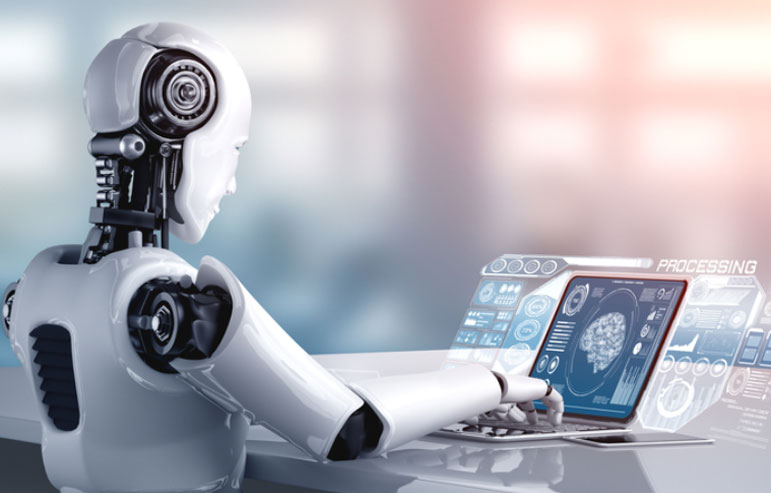Artificial intelligence is one of the most rapidly developing fields in the technology industry. AI is now used in a variety of fields, including healthcare, transportation, and security. Multiple sectors demand the knowledge of experienced AI specialists as a result of this increase.
As a result, B.Tech with specialisation in Artificial Intelligence programme is quite popular and has a wide range of applications. Students may use Artificial Intelligence to learn about Machine Learning and automation, as well as make smarter decisions. Students will gain an overview of essential machine learning algorithms and common methodologies.
Artificial intelligence is the science and engineering of teaching computers to do activities that require human intellect, such as perception, speech recognition, decision-making, and language translation. It is a discipline of computer science dedicated to the development of intelligent systems.
Also Read: Artificial Intelligence: Empowering Today And Tomorrow
Scope of Artificial Intelligence
The goal is to create computer intelligence programmes that can handle real-time problems and help organisations and everyday people achieve their goals. Machine games, speech recognition, language detection, computer vision, expert systems, robotics, and other fields have potential. The more you understand machine learning sciences, such as physics or biology, the better.
Study psychology and the nervous system for biological approaches to Artificial Intelligence. Studying one basic machine language is a good idea to start your journey in the field of AI. Understanding programming languages is typically required for jobs. Chitkara University takes pride in inculcating all these vital dimensions in their B.Tech courses with specialisations in Artificial Intelligence and Machine Learning that aid their students to venture out towards lucrative opportunities in this industry.
Career choices in AI include jobs in intelligence, game programmers, robotic scientists, computer scientists, and data scientists among others. Artificial Intelligence is, thus, a very popular course worldwide. It is beneficial to master at least one basic machine language in order to work in this field.
Also Read: Artificial Intelligence: Redesigning Design?
Exploring Career Options Across Industries
Science and Research
In the scientific community, AI is making significant progress. Artificial intelligence is capable of handling vast amounts of data and processing it faster than human minds. This makes it ideal for studies using large amounts of data from multiple sources.
In this discipline, AI is already making strides. Drug development is a rapidly expanding field, and AI is assisting researchers much in this regard. Researchers are also employing AI to develop microbes for industrial purposes in biotechnology. AI and machine learning are causing substantial advances in science.
Cyber Security
One successful cyberattack can devastate an organisation. Organizations are investing heavily in cybersecurity to protect their data and resources. AI’s future potential in cybersecurity is promising. This field is well-represented by cognitive AI. It detects and analyses risks while also providing analysts with information to help them make better judgments. AI improves and becomes more robust over time by utilising Machine Learning algorithms and Deep Learning networks. This makes it capable of dealing with more advanced threats that may arise in the future.
Also Read: Ai Transformation In Education-Introduction
Data Analysis
AI and machine learning may help a lot with data analysis. AI algorithms are capable of improving with iterations, increasing their accuracy and precision in the process. Data analysts can use AI to assist them in handling and analysing massive datasets. Without putting in a lot of effort, AI can spot patterns and insights that human eyes miss. Furthermore, it is more scalable and speedier at doing so. Google Analytics, for example, features Analytics Intelligence, which uses machine learning to assist webmasters in gaining insights about their websites more quickly.
Transport
For decades, AI has been used in the transportation industry. Autopilot has been used to control planes in the air since 1912. A plane’s trajectory is controlled by an autopilot system, although it isn’t limited to planes. Autopilot is also used by ships and spacecraft to assist them stay on course. Another area where AI’s future potential is fairly vast is autonomous vehicles. Many businesses are developing self-driving cars that will rely largely on AI and machine learning to function properly. Self-driving cars, according to experts, will provide numerous long- and short-term benefits, including reduced emissions and improved road safety. Self-driving cars, for example, will be free of human errors, which account for 90% of traffic accidents.
Home Assistance
In the guise of Smart Home Assistants, AI has found a special place in people’s homes. Amazon Echo and Google Home are popular smart home devices that allow you to complete a variety of activities with only your voice. Mobile phones have smart assistants as well. Apple’s Siri and Google Assistant are excellent examples. They constantly improve their ability to recognise and comprehend the voices of its users. They can also execute a wide range of tasks. Cortana, Microsoft’s smart assistant, is also available.
Also Read: Top 5 Jobs After Btech In Data Science And Artificial Intelligence
Conclusion
India is one of the countries with the most workforce and human resources in the world. As a result, it becomes critical to make the greatest possible use of this workforce at the appropriate moments. The world is currently at one of the most important junctures in technological history. Correct decisions and innovations have the power to alter the course of history. India is also helping to realise this innovative goal in a variety of ways. AI can be thought of as an exoskeleton for the human brain, with various dimensions that can be easily updated and added.






